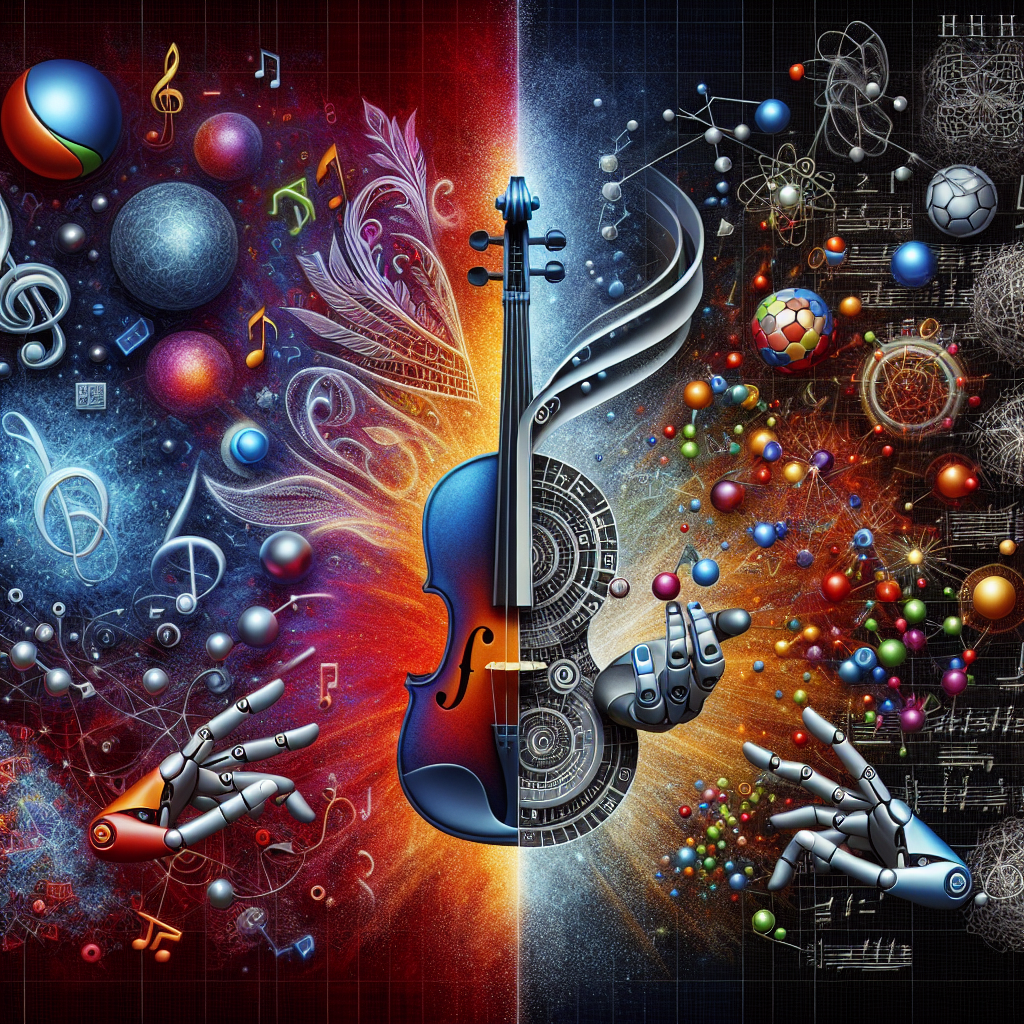Artificial intelligence (AI) has taken the world by storm in recent years, revolutionizing various industries and changing the way we live and work. One area where AI is making a significant impact is in the field of music. AI is bridging the gap between science and art by enabling musicians and composers to create innovative and unique pieces of music that were previously thought to be impossible.
AI in Music Composition
One of the most exciting applications of AI in music is in composition. AI algorithms are being used to compose music in various styles and genres, often producing compositions that are indistinguishable from those created by human composers. These algorithms can analyze vast amounts of music data, learn patterns and structures, and generate new music that is both original and engaging.
One of the pioneers in this field is the AI music composition platform Aiva, which uses deep learning algorithms to compose classical music. Aiva has been used to compose music for orchestras, films, and commercials, and has even released albums of its compositions. Other platforms, such as Amper Music and Jukedeck, are also using AI to create music for a wide range of applications.
AI in Music Production
AI is also being used in music production to enhance the creative process and improve the quality of recordings. AI algorithms can analyze audio tracks, identify patterns and trends, and make recommendations for mixing and mastering. This can help musicians and producers save time and effort in the production process, as well as achieve a higher level of quality in their recordings.
One example of AI in music production is LANDR, a platform that uses AI algorithms to master audio tracks. Users can upload their tracks to the platform, and LANDR will analyze the audio and apply mastering techniques to optimize the sound quality. This can help musicians and producers achieve professional-sounding recordings without the need for expensive equipment or technical expertise.
AI in Music Recommendation
AI is also revolutionizing the way music is discovered and consumed. Streaming platforms such as Spotify and Apple Music use AI algorithms to analyze user data, preferences, and listening habits, and recommend music that is likely to be of interest to each individual user. This personalized recommendation system has helped users discover new music and artists, and has led to a more diverse and engaging music listening experience.
AI in live performances
AI is also being used in live performances to enhance the capabilities of musicians and performers. AI algorithms can analyze audio input in real time, generate accompaniment or backing tracks, and even interact with musicians to create improvised performances. This can open up new possibilities for collaboration and experimentation, as well as enable musicians to push the boundaries of their creativity.
Challenges and Limitations
While AI has the potential to revolutionize the music industry, there are also challenges and limitations that need to be addressed. One of the main challenges is the ethical implications of using AI in music composition and production. There are concerns about the impact of AI on the livelihood of human musicians and composers, as well as questions about ownership and copyright of AI-generated music.
Another challenge is the unpredictability of AI algorithms. While AI can produce impressive and innovative music compositions, there is still a level of unpredictability and randomness in the creative process. This can make it difficult for musicians and composers to control and shape the music generated by AI, and may limit the ability to express emotion and meaning in the music.
FAQs
Q: Can AI compose music that is as good as music composed by human composers?
A: AI algorithms have shown the ability to compose music that is indistinguishable from human compositions in many cases. However, the subjective nature of music means that the quality of AI-generated music can vary, and some may argue that human composers still have the edge in terms of emotional expression and creativity.
Q: Will AI replace human musicians and composers?
A: While AI has the potential to enhance the capabilities of musicians and composers, it is unlikely to replace them entirely. Human creativity, emotion, and expression are essential aspects of music that cannot be replicated by AI algorithms. Instead, AI is more likely to be used as a tool to augment and support human creativity in music composition and production.
Q: How can musicians and composers benefit from using AI in their work?
A: AI can help musicians and composers save time and effort in the composition and production process, as well as provide new opportunities for collaboration and experimentation. AI algorithms can analyze vast amounts of data, identify patterns and trends, and generate new ideas and possibilities that may not have been considered by human composers.
Q: What are the ethical implications of using AI in music composition and production?
A: There are concerns about the impact of AI on the livelihood of human musicians and composers, as well as questions about ownership and copyright of AI-generated music. It is important for the music industry to address these ethical implications and ensure that AI is used responsibly and ethically in the creation and distribution of music.
In conclusion, AI is bridging the gap between science and art in the field of music, enabling musicians and composers to create innovative and unique pieces of music that were previously thought to be impossible. AI is revolutionizing music composition, production, recommendation, and live performances, opening up new possibilities for collaboration and experimentation. While there are challenges and limitations that need to be addressed, the potential of AI in music is vast and exciting, and is likely to shape the future of music in the years to come.

